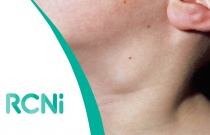Preconception Health Promotion: The Foundation for a Healthier Tomorrow
Merry-K. Moos, BSN, MPH, FAAN
3.00 Hours
This module is designed for registered nurses who interact with women of childbearing age before and after pregnancy and between pregnancies. It reviews the rationale for moving away from prenatal care as the principle approach to preventing poor pregnancy outcomes to an approach that encompasses a woman's health before concepti....
Continence Care
Industry Specialists
1.00 Hours
Continence is the ability to control the movements of both the bladder and bowel. Incontinence is when someone has little or no control over their bowel or bladder movements.
Psoriasis — the role of the nurse
Sheila Ryan
This module addresses the presentation, management and treatment of psoriasis, focusing on disease severity, psoriasis type, patient lifestyle and quality of life. The role of the nurse in educating the patient about the various treatments available and how a particular treatment impacts the patient’s lifestyle is also addressed....
The right medicine for the right patient: GS1 barcodes improve logistic efficiency and patient safety
Viggo Nielsen
During this webinar, Viggo Nielsen, Supply Chain Manager, Hospital Pharmacy of the Capital Region, Denmark will explain the overall medicines supply process from warehouse to patient at Denmark’s Capital Region Pharmacy; provide an overview of the benefits seen from use of GS1 barcodes in the warehouse to pharmacy distribution p....
Practical experience of administering subcutaneous rituximab
Sarah Liptrott, Nicola Crosbie, Maris Stella Sugino, Renate Bratke, Maria Mendoza, and Pakeeza Sayyed
Treatment regimens involving the monoclonal anti-CD20 antibody rituximab are the standard of care for patients with CD20-positive non-Hodgkin lymphoma (NHL). It has conventionally been given by intravenous (IV) infusion, which requires intermittent patient monitoring during administration. A subcutaneous (SC) formulation is also....
An overview of non-Hodgkin lymphoma
Helen King and Rebecca Myatt
Non-Hodgkin’s lymphoma is a heterogeneous group of lymphoproliferative malignancies with differing patterns of behaviour and responses to treatment. Chemotherapy, radiotherapy and stem cell transplantation are the main treatment modalities, but targeted therapies such as monoclonal antibodies are improving survival. The complex....
Preventing Suicide
Deb Stone, ScD, MSW, MPH, et al.
2.50 Hours
Suicide is highly prevalent and presents a major challenge to public health in the United States and worldwide. This CEU course provides strategies for preventing the risk of suicide as well as approaches to lessen the immediate and long-term harms of suicidal behavior for individuals, families, communities, and society.
Antimicrobial Guidelines for Prison Populations
Federal Bureau of Prisons
1.00 Hours
Antimicrobial resistance is a growing problem in the healthcare and community setting - leading to increased morbidity, mortality, and healthcare costs. This CEU course provides guidance on the appropriate use of antimicrobials, provides recommendations and standards for the medical management of inmates receiving antimicrobial....
Conversations about Mental Health
Substance Abuse and Mental Health Services Administration
2.00 Hours
Mental health issues in our communities, particularly for youth, are complex and challenging. This CEU course provides information regarding mental health and mental illness and how communities can improve prevention of mental illnesses, promotion of mental health, public education and awareness, early identification, treatment....
Recurrent Shoulder Dislocation
Abdul Gafoor
This session describes magnetic resonance imaging (MRI) of recurrent shoulder dislocation.
Assertive Communication
Peter Keane
This session outlines three communication styles: assertive, passive and aggressive. The process and advantages of assertive communication are then described and illustrated in detail. The session supports the development of leadership in clinical settings.
Ethics and Equity in Planning Services
Bob Klaber
0.50 Hours
This session will explore ethical and equity issues relating to the planning of services, such as equality and diversity, the involvement of patients and the public, the rationing of services and the equitable use of resources. This session supports the development of leadership in clinical settings.
Paediatric - Introduction to Autism Spectrum Disorder
Daphne Keen
This session focuses on the causes and presentations of autism spectrum disorders and will help you to identify children with autism spectrum disorder (ASD).
Paediatric - Musculoskeletal Problems
Amy Rowan
0.50 Hours
In this session we describe how to approach the clinical assessment of a child who is limping, or has limb pains. We outline important causes of limp and limb pain, including growing pains and inflammatory conditions, and red flags that highlight when you should be concerned. We describe normal variants of lower limb development....
Causes of Nausea and Vomiting in Palliative Care
Saskie Dorman
This session describes the physiological processes underlying nausea and vomiting and offers a framework for working out the causes of nausea and vomiting, as a basis for assessment and management of these problems. The session focuses on patients with advanced disease but is not a comprehensive view of the causes of nausea and....
Recognising and Managing Fatigue in Palliative Care
Margaret Saunders
This session provides a framework for the integrated assessment and management of fatigue in end of life care patients. This session was reviewed by Margaret Saunders and Christina Faull and last updated in April 2015.
Depth of Anaesthesia: Incidence and Management of Awareness
Oonagh Duff and Yogen Amin
0.50 Hours
This session will examine the incidence of awareness under general anaesthesia and identify which patients are most likely to experience it. It will describe measures to reduce the incidence of awareness, and how to manage an episode when it does occur.
Overview of Intravenous Fluids - Anesthesiology
Peter Ford
0.50 Hours
This session describes the physiology of body fluids and describes the composition and indications of some common intravenous fluids, together with their potential problems.
Antibiotic Policies - Anesthesiology
Andrew Ferguson
0.50 Hours
This session will review the incidence, mechanisms and implications of antimicrobial resistance in hospital practice. Using this as the background, we will discuss the role played by appropriate antimicrobial prescribing and administration in reducing the spread of resistance. We will also look at the implications of Clostridium....
Pharmacological and Non-pharmacological Management of Asthma
Viv Marsh
0.50 Hours
This session will explore the options associated with the pharmacological and non-pharmacological management of asthma. As a long-term medical condition, ongoing management is the key to asthma control and patient safety.
Recognising and Managing Asthma Attacks
Viv Marsh
0.50 Hours
This session provides an overview of asthma attacks including the initial assessment and management as well as recommendations for follow-up by an asthma-trained healthcare professional.
Recognising and Managing Asthma Attacks in Children
Viv Marsh
0.50 Hours
This session provides an overview of asthma attacks in children including their initial assessment and management as well as recommendations for follow-up by an asthma trained Health Care Professional (HCP).
Breast Cancer Sentinel Node
Svetislav Gacinovic, Jimmy Bomanji and Wendy Waddington
0.50 Hours
This session discusses commonly used radio-pharmaceuticals to detect the sentinel node in radionuclide imaging for breast cancer disease.
Anti-Scatter Grids in Radiography
Chris Taylor and Anna Burch
0.25 Hours
This session covers the use of grids to reduce the effect of scatter on a radiograph.
Cardiac MRI
Stephen Nicholas
0.50 Hours
This session describes the magnetic resonance imaging (MRI) techniques used for imaging the heart.






















